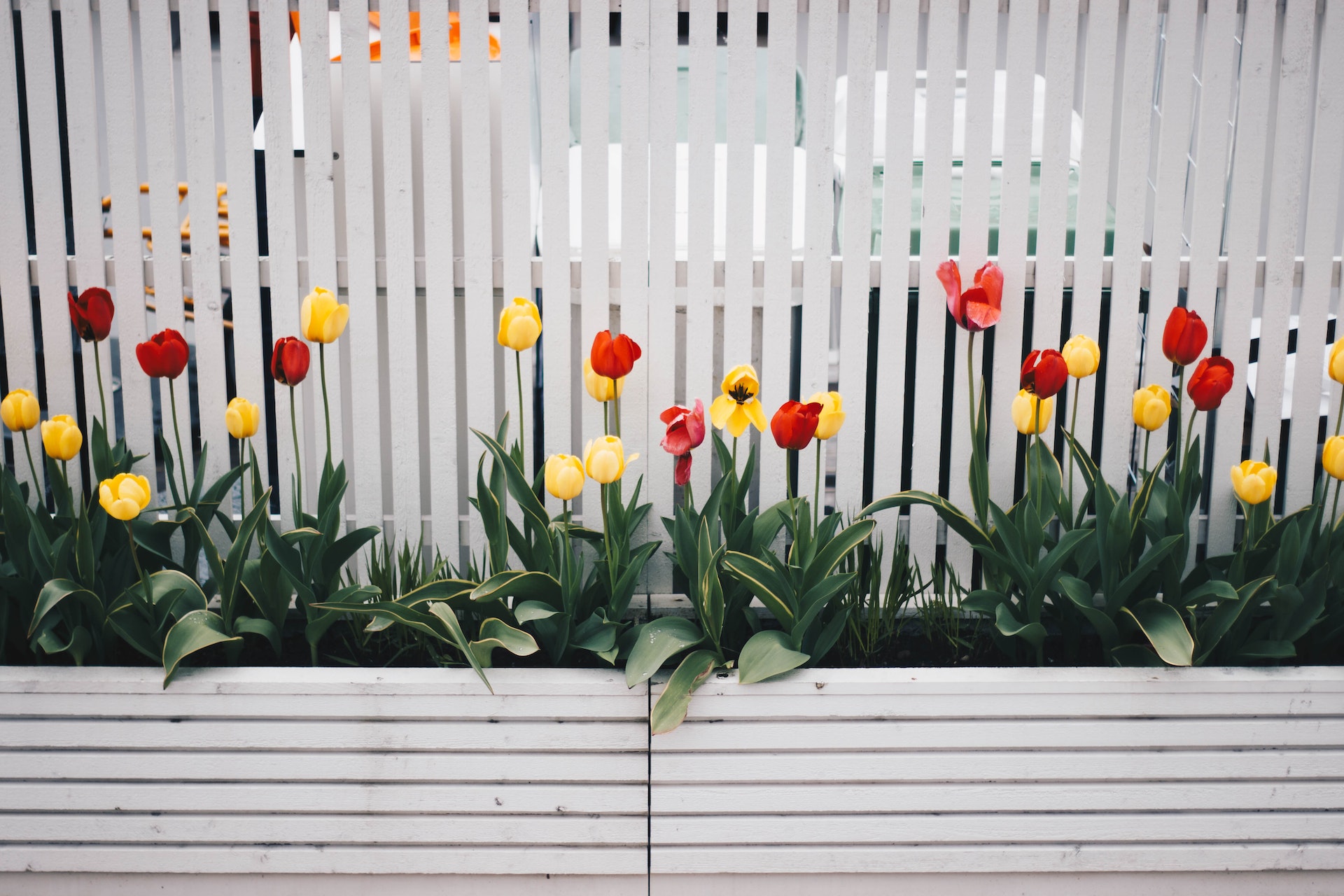When it comes to enhancing your property’s security, privacy, and aesthetic appeal, garden fencing plays a crucial role. However, knowing how much a garden fence costs is vital before making any decisions to ensure you choose the best option for your property and your budget.
In this comprehensive guide, we will delve into the cost of a new garden fence in 2023, exploring the factors that influence pricing, different types of fencing and their respective prices, labour expenses and tips to manage these expenses effectively.
By the end, you’ll have a clear understanding of what to expect when it comes to garden fence costs and how to make informed decisions for your own project.
Factors Affecting How Much A Garden Fence Costs
Several key factors contribute to the overall cost of garden fencing. By considering these factors, you can estimate expenses and budget accordingly.
Here are the primary factors to keep in mind:
1. Type of Fencing
The choice of fencing material significantly impacts the cost. Popular options include wood, vinyl, metal and composite. Each material has its own advantages, such as durability, maintenance requirements, and aesthetics, which influence the overall price. The cost of garden fence materials can vary widely depending on the type chosen and the quality desired.
Read our article on garden fencing ideas to help you make your choice.
2. Size of the Garden
The size of your garden directly affects the amount of fencing material needed. More extensive gardens require more materials, resulting in higher costs. The height and length of the fence will also impact the overall cost. It’s essential to accurately measure the dimensions of your garden to determine how much fencing you will need.
3. Labour Costs
Hiring professionals for garden fence installation ensures a high-quality and correctly installed fence. Labour costs vary depending on the project’s complexity, location and the number of workers required. Skilled labour is essential for proper fence installation, ensuring structural integrity and longevity.
Types of Garden Fencing and Their Costs
1. Lap Panel Fencing
Lap panel fencing is a popular and cost-effective option. Consisting of overlapping horizontal timber panels, it provides privacy and security. The average cost for lap panel fencing in the UK ranges from £20 to £30 per panel, depending on the height and quality. Additional costs may include gravel boards, fence posts and a garden gate. Lap panel fencing is considered to be relatively easy to install, making it a common choice for DIY projects.
2. Close Board Fencing
Close board fencing offers increased privacy and durability compared to lap panel fencing. It features vertical feather-edge boards supported by timber posts. The average cost of close board fencing is around £60 to £90 per panel. This type of fencing requires sturdy fence posts, gravel boards and additional components like capping rails. We recommend you consider professional installation due to the precision and expertise needed for a secure, long-lasting fence.
3. Picket Fencing
Picket fencing is a classic and charming choice. It typically consists of evenly spaced vertical boards with a pointed or rounded top. Picket fencing costs approximately £20 to £30 per panel. This style of fencing often requires additional materials, such as decorative posts and post caps, which can slightly increase the overall cost. Picket fencing is ideal for smaller gardens and can add a touch of elegance to the property.
4. Composite Fencing
Composite fencing is a low-maintenance alternative to traditional wood fencing. Combining wood fibres with synthetic materials, it offers enhanced durability and resistance to rot, insects and adverse weather conditions. Composite fencing costs approximately £70 to £90 per panel. Although the upfront cost is higher, composite fencing requires minimal maintenance and offers long-term savings on repairs and replacements. Professional installation is recommended due to the specific requirements of composite materials.
5. Chain-Link Fencing
Chain-link fencing is a practical and affordable choice for larger areas or properties that require a high level of visibility. It consists of interwoven metal wires supported by steel posts. The average cost of chain-link fencing is around £10 to £20 per metre. Additional expenses may include tension bars, gates and fittings. Chain-link fencing is relatively easy to install and suitable for various residential, commercial and recreational applications.
6. Wrought Iron Fencing
Wrought iron fencing adds elegance and a classic touch to any property. It is a highly durable option but comes at a higher cost. The average cost of wrought iron fencing is approximately £100 to £300 per panel, depending on the design complexity and customisation. Professional installation is necessary due to the weight and specialised techniques required.
7. Bamboo Fencing
Bamboo fencing offers a unique and eco-friendly option for garden boundaries. It is an affordable and sustainable choice. The average cost of bamboo fencing is around £20 to £40 per panel, depending on the height and quality. Bamboo fencing is lightweight and relatively easy to install, making it suitable for DIY projects.
Labour Costs Involved in Garden Fence Installation
While materials play a significant role, professional installation ensures a sturdy and long-lasting fence. Labour costs for garden fence installation in the UK generally range from £200 to £500 per day, depending on factors like project complexity, location and the number of workers required.
Hiring experienced professionals guarantees proper installation and can save you potential repair costs in the long run. It’s important to discuss the project details with the fencing contractor and obtain a written estimate that includes labour costs, materials and any additional services or preparations required.
Average Cost of Garden Fencing in the UK
The average cost of garden fencing in the UK depends on various factors, including the type of fencing, garden size, location and additional customisation requirements. As a rough estimate, the average cost per metre for garden fencing ranges from £20 to £50.
However, we recommend you obtain multiple quotes from reputable fencing companies to get a more accurate estimate based on your specific requirements. You can receive more tailored cost estimates by discussing the specifics of your project, such as the type of fencing, height, length and any customisation needs. Remember to consider long-term value and durability when evaluating different quotes.
Tips to Manage Garden Fence Expenses
1. Do Thorough Research and Planning
Conduct in-depth research on different fencing materials, styles and designs to find the best fit for your budget and aesthetic preferences. Consider factors such as maintenance requirements, durability and the overall look of the fence. Planning ahead will help you make informed decisions and avoid costly mistakes.
2. Obtain Multiple Quotes
Contact several fencing professionals to obtain detailed quotes that include material costs, labour expenses and any additional services. Comparing quotes will enable you to find the best value for your investment. Ask for references and check customer reviews to ensure the quality of workmanship.
3. Consider Long-Term Value
While upfront costs are important, it’s crucial to consider the long-term value of your investment. Opting for high-quality materials and professional installation may incur higher initial costs but can save you money on repairs and replacements in the future. Take into account the durability, maintenance requirements and expected lifespan of the chosen fencing materials.
4. Adhere to Local Regulations
Ensure compliance with local council regulations regarding garden fencing height, materials, and installation requirements. Non-compliance may lead to additional expenses or legal issues down the line. It’s advisable to consult with your local council or authorities to understand the specific regulations applicable to your area.
5. Consider How to Dispose of Your Old Fence
If you are replacing an existing fence, consider the costs of removing and disposing of the old materials. Some fencing companies may offer this service as part of their installation package, while others may charge an additional fee. Clarify this aspect during the quote and contract negotiation process.
6. Weight Up DIY vs Professional Installation
While DIY installation may seem cost-effective initially, it’s important to consider your skills, available time and the complexity of the project. Properly installing a fence requires expertise, tools and precision. Hiring professionals ensures a high-quality and correctly installed fence, saving you potential future costs and ensuring a more efficient installation process.
Enhance Your Property with a Properly Installed Garden Fence
By considering factors such as the type of fencing, garden size, labour expenses and average fencing costs, you can make informed decisions and effectively manage your budget. Remember to prioritise professional installation for complex projects and adhere to local regulations for a successful fencing project. For reliable garden fence installation services in North London, get in touch with the team at Green Team Landscaping. We have extensive experience installing garden fencing and can assist you with your project.


